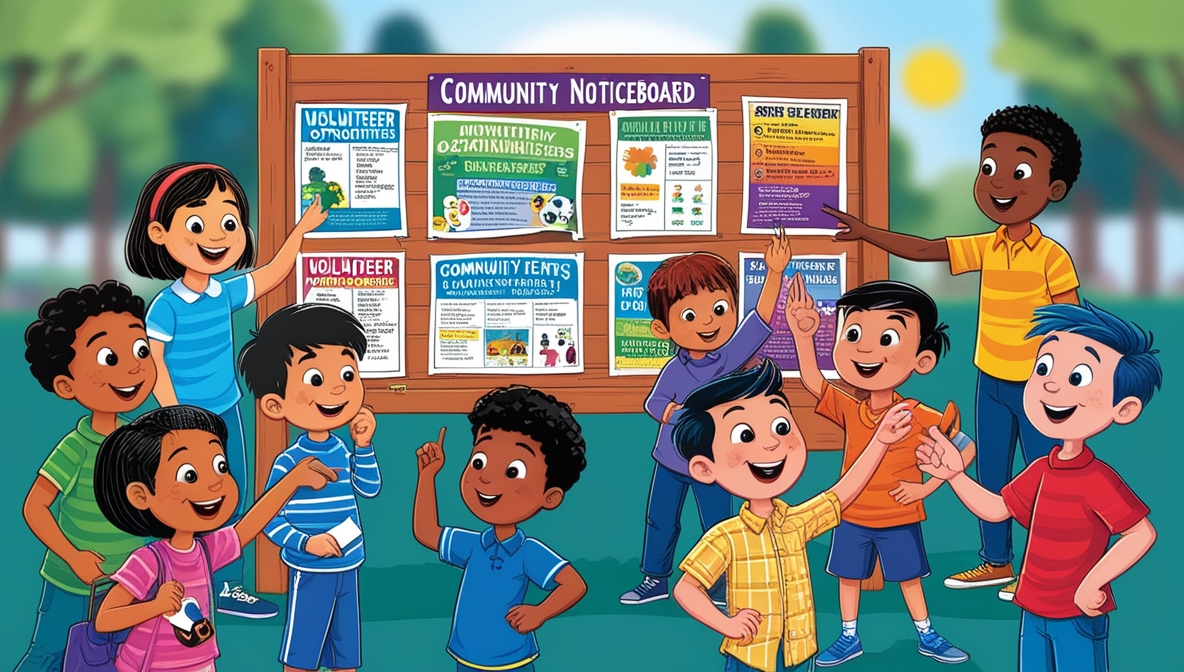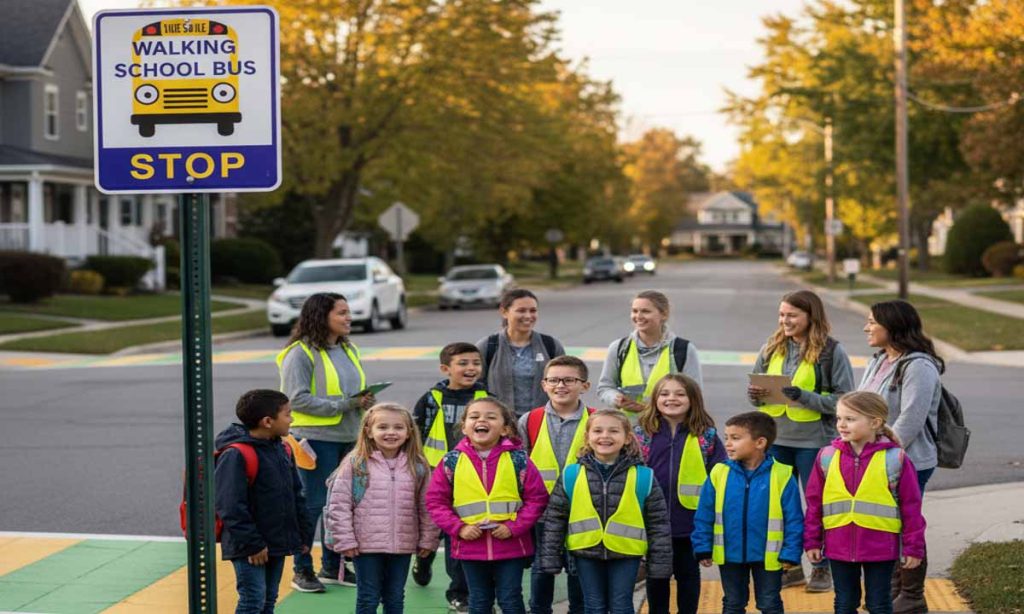Strong leadership in kids doesn’t emerge overnight; it grows through experiences, challenges, and supportive mentorship. Community activities can play a pivotal role in this development by offering young people real-world situations to practice, learn, and apply leadership skills. This article highlights effective community-based programs that help kids gain confidence, make decisions, and understand the value of contributing to a group’s success.
Why Community Activities Develop Leadership
When kids engage in community activities, they’re often encouraged to take initiative, problem-solve, and communicate—all core elements of effective leadership. Programs that involve teamwork, goal-setting, and community impact allow young people to step outside their comfort zones. Kids start to see how their contributions affect others, building their self-confidence and sense of responsibility.
Key Community Programs for Leadership Development
These programs provide structured environments for kids to grow as leaders through active, hands-on learning:
1. Youth Mentorship Programs
Mentorship programs for kids connects kids with mentors who guide them through personal and professional growth. Mentorship programs create a safe space for kids to ask questions, receive advice, and set personal goals.
- Skills Gained:
- Communication and listening skills
- Accountability through goal-setting
- Confidence-building through one-on-one support
- Example Activities:
- Weekly check-ins with mentors
- Goal-tracking exercises
- Problem-solving discussions and role-play
Youth mentorship fosters a foundation of trust, providing kids with encouragement to take on leadership roles in other areas.
2. Community Service Projects
In community service, kids participate in activities that benefit others, such as food drives, park clean-ups, or helping out at community centers. In community service, kids participate in activities that benefit others, such as food drives, park clean-ups, or helping out at community centers and after-school programs. These projects promote teamwork, responsibility, and empathy.
- Skills Gained:
- Collaboration and delegation
- Responsibility for community welfare
- Empathy and social awareness
- Example Activities:
- Organizing a food or clothing drive
- Participating in environmental clean-up events
- Assisting in local shelters or retirement homes
Many service projects also include opportunities to work with organizations focused on special needs children support, teaching kids empathy and inclusivity. Through these activities, kids learn to see the impact of their work on others, which strengthens their commitment to leadership.
3. Youth Advisory Boards
Many communities set up youth advisory boards to give kids a voice in decision-making processes that affect them. These boards provide an excellent platform for kids to practice leadership and develop decision-making skills.
- Skills Gained:
- Decision-making and critical thinking
- Public speaking and presentation skills
- Collaborative problem-solving
- Example Activities:
- Voting on issues that impact youth services in the community
- Presenting ideas and recommendations to local government
- Planning events or initiatives aimed at youth engagement
Youth advisory boards allow kids to experience firsthand the challenges of leadership and governance, helping them understand the significance of their voices. Many boards also launch initiatives like community tutoring programs, giving kids leadership roles in helping peers academically.
4. Student-Run Clubs and Organizations
Schools and communities often support student-run clubs, allowing kids to lead based on their interests, such as environmental clubs, book clubs, or student councils. These clubs foster independence and give kids a chance to organize and manage.
- Skills Gained:
- Initiative and self-motivation
- Organizational and event-planning skills
- Leadership by example
- Example Activities:
- Planning and executing club events
- Managing club members and roles
- Setting goals and planning fundraisers
Running a club teaches kids to be accountable and motivates them to think strategically, both critical aspects of leadership.
5. Outdoor Adventure Programs
Programs that involve outdoor adventures like camping, hiking, and team-building challenges encourage kids to take on physical and mental challenges. These programs emphasize resilience, teamwork, and decision-making under pressure.
- Skills Gained:
- Resilience and adaptability
- Teamwork and trust-building
- Decision-making in challenging environments
- Example Activities:
- Group hiking trips with leadership rotations
- Camping trips that involve survival skill training
- Obstacle courses or rope courses
Outdoor programs push kids to confront their limitations and develop self-confidence through physical and mental challenges. They leave with a stronger sense of what they can accomplish.
Building Essential Leadership Traits
Each of these programs builds on core traits that contribute to effective leadership:
- Communication: Programs that require kids to speak up, such as advisory boards or club roles, build strong communication skills, which are essential in any leadership position.
- Accountability: Community service and student-run clubs reinforce the idea of accountability. Kids learn to follow through with commitments and understand the importance of their roles within a group.
- Empathy: Leadership is more than directing others; it’s about understanding and valuing the perspectives of others. Activities like community service and mentorship build empathy, a key trait for leaders in any field.
- Problem-Solving: Outdoor programs and advisory boards often place kids in situations where they must think critically and make decisions under pressure. These experiences are invaluable in teaching problem-solving, a skill that underpins effective leadership.
- Confidence: Leadership is rooted in confidence. When kids realize they can take on challenges and achieve their goals, their confidence in leading others grows naturally.
Tips for Parents and Mentors Supporting Young Leaders
Parents and mentors play a vital role in nurturing leadership qualities in kids. Here are actionable tips for guiding young leaders:
- Encourage Participation: Support kids in joining various community activities. The more exposure they have, the broader their skill set becomes.
- Celebrate Efforts, Not Just Results: Emphasize the importance of trying and learning from experiences rather than focusing solely on success or failure.
- Provide Constructive Feedback: When kids take on leadership roles, feedback is key. Offer specific, actionable advice that helps them grow.
- Set an Example: Demonstrate strong leadership qualities yourself. Kids often mirror behaviors; showing integrity, empathy, and resilience teaches by example.
- Encourage Reflection: After an activity, encourage kids to reflect on what they learned and what they could improve. Reflection fosters growth and helps them recognize their strengths.
Community Involvement: A Path to Lifelong Leadership
Community activities offer real-world leadership experience that classroom learning often cannot replicate. They teach kids to think beyond themselves, build relationships, and lead with integrity. Programs like youth mentorship, community service projects, and outdoor adventure provide structured environments for growth. By supporting young people in these initiatives, communities create a foundation for future leaders who are not only confident but also committed to positive change.






